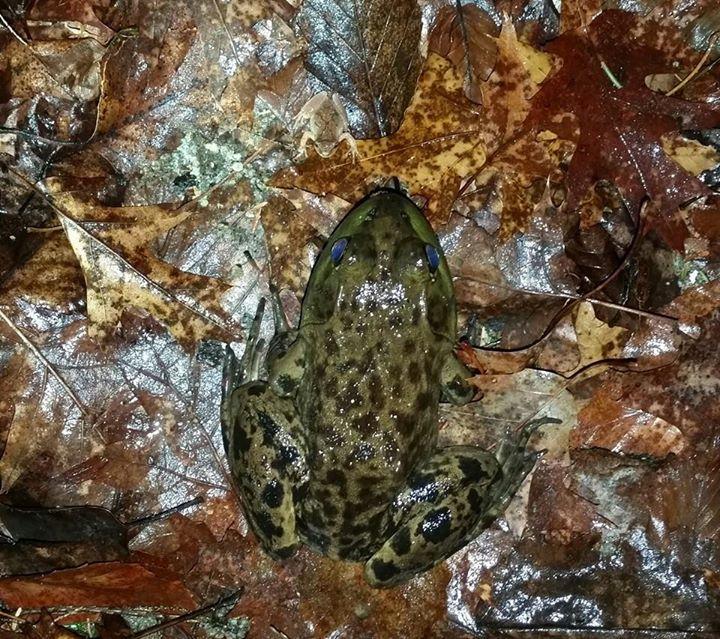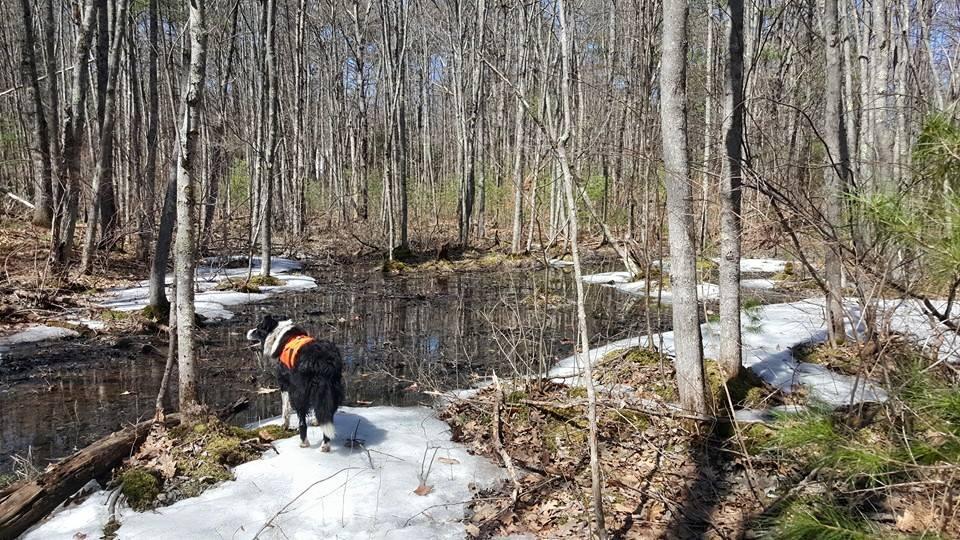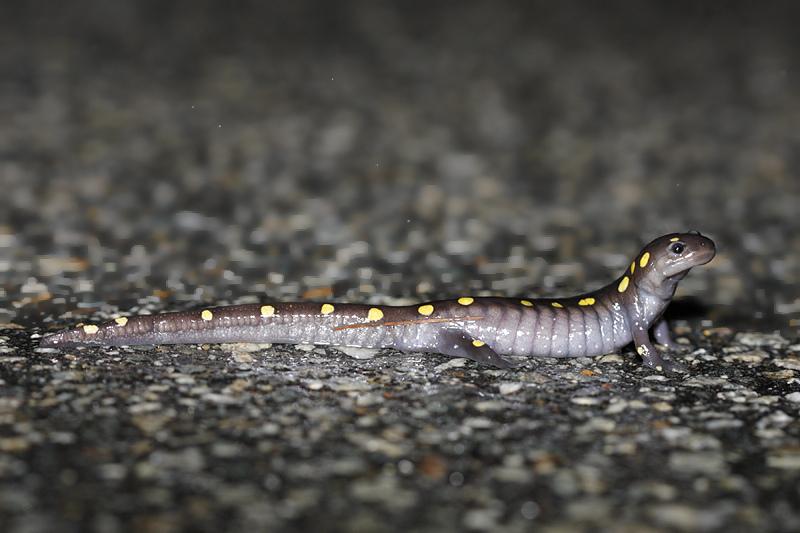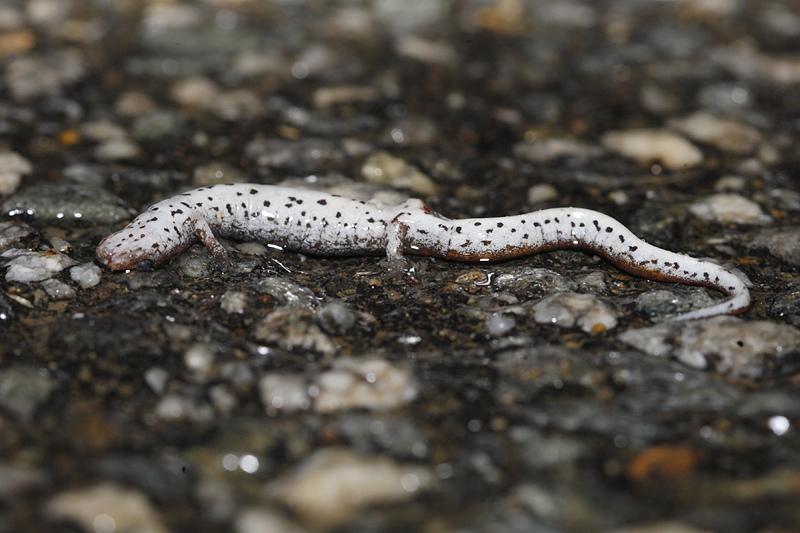Why did the salamander cross the road? To get to a vernal pool of course!
- Tags:
- Wildlife

Bull Frog and Spring Peeper meet as they start to cross the road during the "big night" in 2014.
Every spring, many species of amphibians undergo a migration to vernal pools - frequently during "Big Nights" when very large numbers of amphibians move all at once to these isolated, temporary pools that serve as their breeding grounds. In February, Dave Anderson wrote about these pools and the species that live in them, and in March, "Something Wild" featured two stories about one of the species that breeds in these important pools: the Wood Frog (see Frogs Are-a-Courtin' and If It Sounds Like a Duck It Might Be a Frog).

Last week, I was lucky enough to be outside on a few of the beautiful conservation easements held by the Forest Society. Many of our easements have vernal pools - and the properties I visited were no exception. However, not a single pool had any egg masses in them! A quick review of weather indicated that we had not yet experienced warm rain during the night. In order for amphibians to migrate to these pools the temperature must remain above 40 degrees during the night while it is raining. But good news is coming to all amphibian lovers. As I write this, it is not only raining, but forecast to rain throughout the night with temperatures remaining above 45 degrees for the entire night! This means that tonight (4/20) could be the "Big Night" where large numbers of Wood Frogs, Spotted Salamanders, Spring Peepers, and many other amphibians will make their way to vernal pools, find a mate, and lay their eggs.

Due to habitat fragmentation, many of these species will need to cross roadways to make it to these pools. This is the most risky part of their journey and many salamanders and frogs are run over by vehicles during their crossing. So if you're an amphibian lover, consider lending a hand to these amphibians by shepherding them across the road -- only when it's safe for you to do so! You should be sure to wear bright reflective clothing and have a bright light! You can stand guard as the creatures cross or even use a spatula or your hands to scoop them up and help them across in the direction they were going. Before you pick up any amphibian you should have wet hands (from the rainwater) as their skin is very sensitive. And be careful not to pick up a salamander by its legs or tail. There are many tips online on how to handle and identify amphibian species that cross the roads during these "big nights."

If you cannot stop to help the amphibians across the road - drive slowly to help see and avoid them in order to lessen the road mortality.

